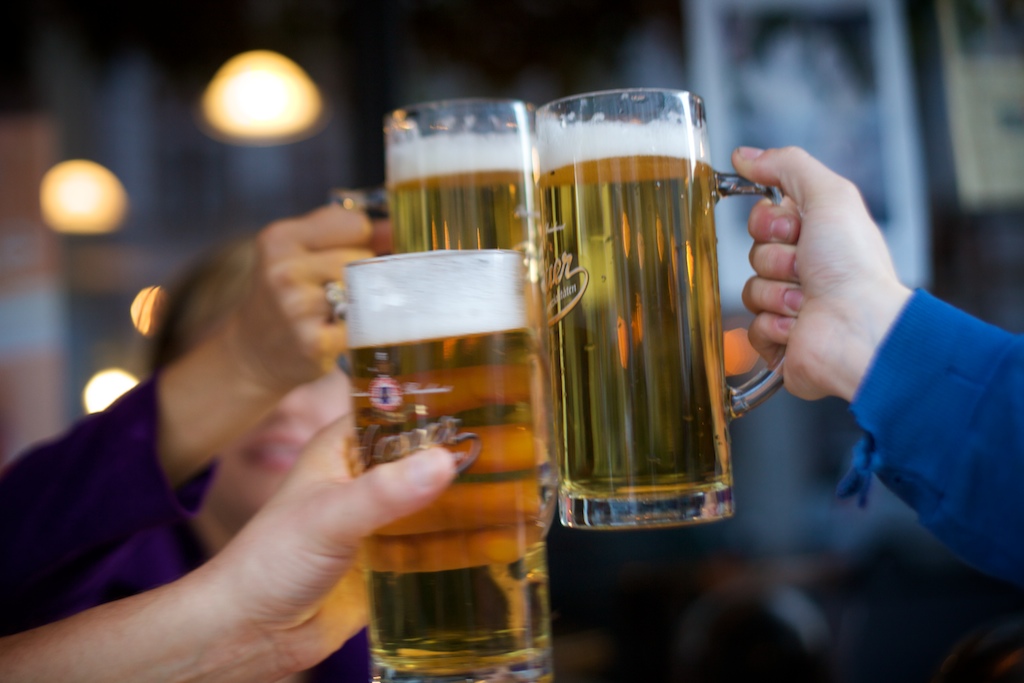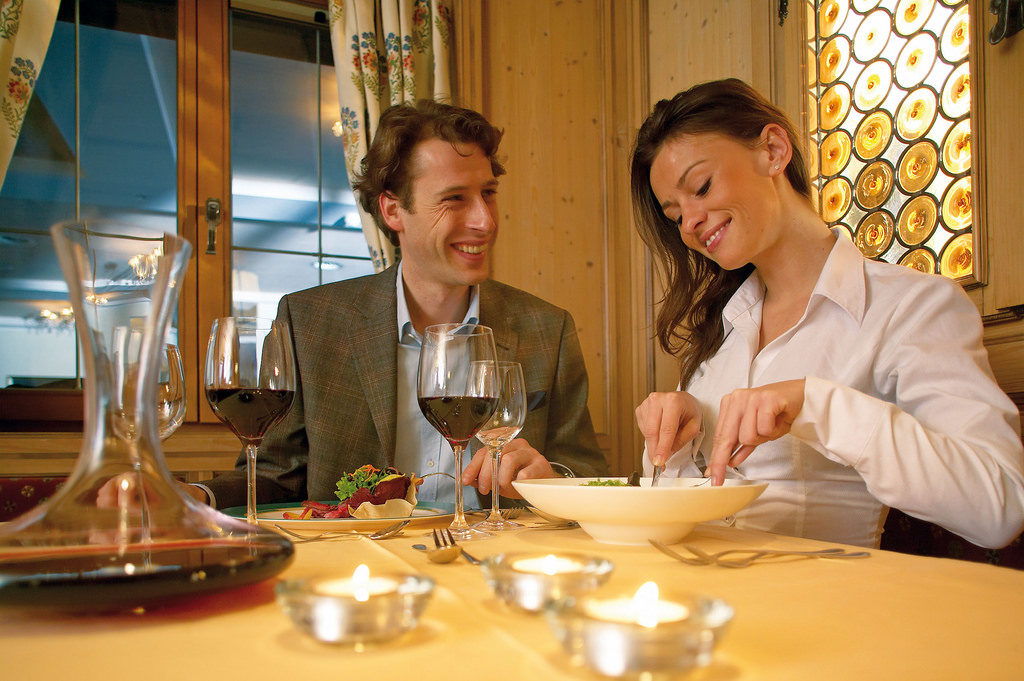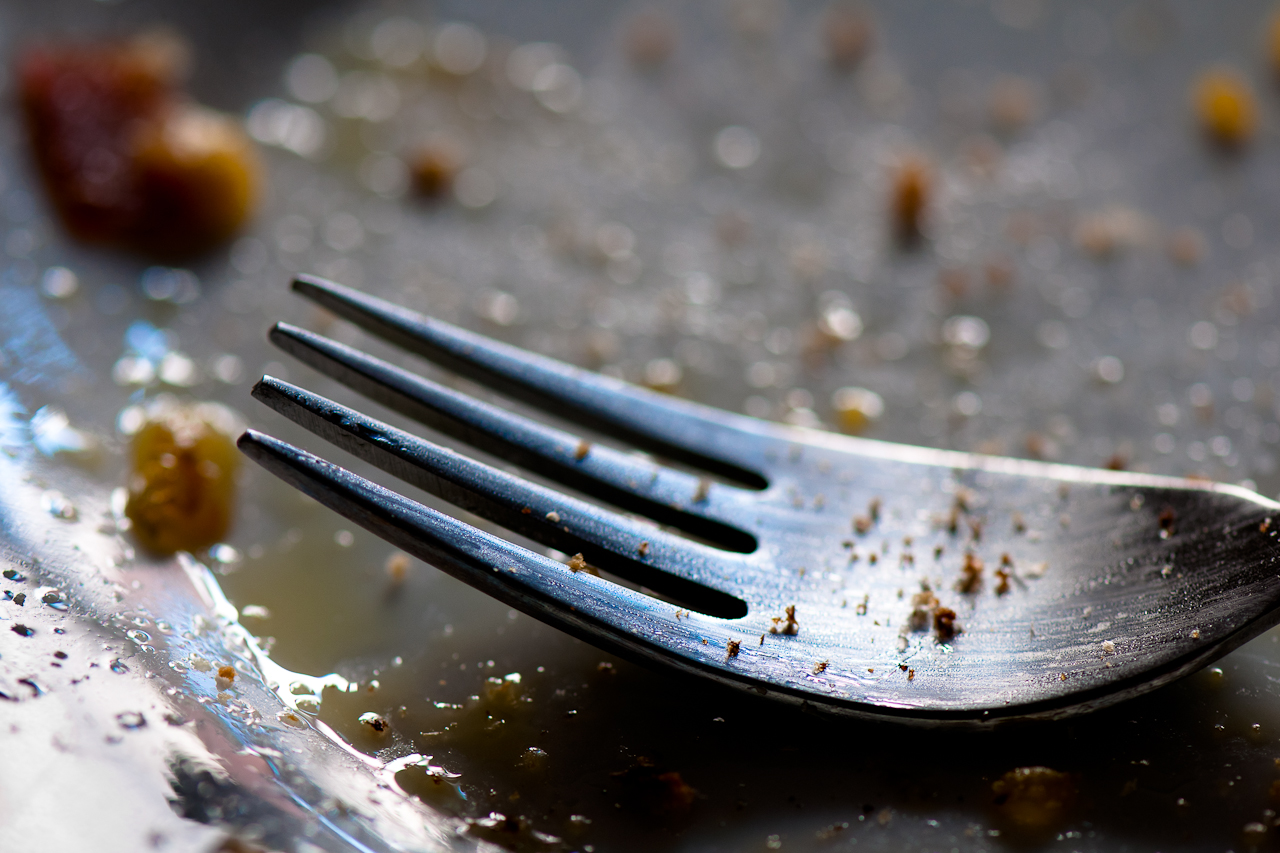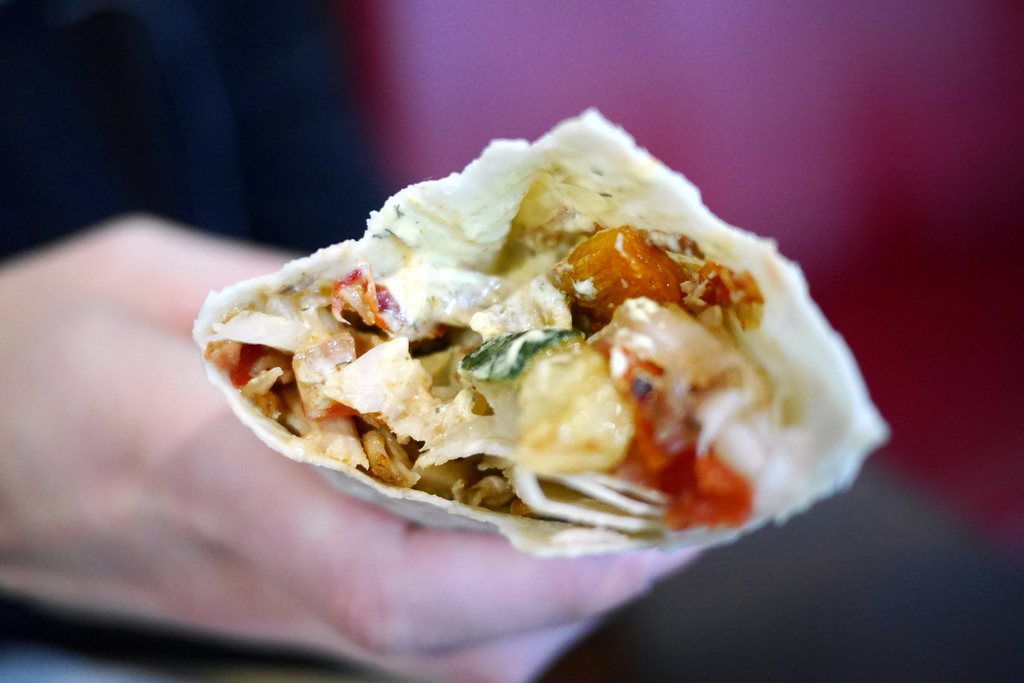Food and Drink: Dining Etiquette
Table Etiquette
Like other Europeans, Germans eat with the fork in the left hand and the knife in the right and keep both utensils in their hands, above the table, for the entire meal. For Germans, there are very few foods that are acceptable to eat with your hands, and these are mostly fast food such as Döner kebab or grilled sausage on a bread roll. Pizza and French fries are always eaten with a fork.
Except at very upscale restaurants, it is customary to use your napkin on the table next to your plate rather than placing it in your lap.
In restaurants, water is not served free with the meal. If you order water, the waiter will bring a bottle of sparkling mineral water unless you explicitly request tap water (Leitungswasser). Salt and pepper are not usually placed on the table in either private homes or restaurants—seasoning is left up to the chef’s discretion, not the diner’s.
Germans usually eat everything they are served, and it is considered impolite to leave uneaten food on your plate since this means you did not like the food. In family-style or buffet situations, you should therefore take only what you can eat—it is better to go back for seconds than to leave food on your plate. For this reason, bringing home leftovers from a restaurant is so uncommon that most restaurants do not have special containers for take out, and the waiter might bring a single piece of aluminum foil if a doggie bag is requested.
Social Dimension of Dining
Punctuality is both a virtue and way of life in Germany, and if a dinner is scheduled for 6pm, it will start at 6pm sharp. While lateness is frowned upon, it is also not appropriate to arrive too early. Showing up more than 5 minutes before schedule is considered bad form as your German host may not yet be ready to receive you.
While start times for meals are strict, dinners with friends or business associates are usually quite leisurely and can last for hours. If you make a reservation at a restaurant, the waitstaff expects your party to occupy the table for the entire evening.
When drinks are served, Germans wait until everyone has a beverage in hand and then toast with a simple Prost or Zum Wohl (to your health). These are everyday toasts that are said when eating lunch or dinner—but not breakfast—with family, friends, and colleagues alike. When clinking glasses, it is important to look each person at the table in the eye. There are many myths that failing to do so translates into seven years of bad luck, but the custom is actually more about respectfully acknowledging each of your dining partners.
Whether it is a simple lunch at home with family or a gourmet meal at a restaurant with friends or colleagues, diners always wish each other Guten Appetit (bon appetit) or Mahlzeit before beginning to eat.
Article written for World Trade Press by Carly K. Ottenbreit
.
Copyright © 1993—2025 World Trade Press. All rights reserved.

 Germany
Germany 


